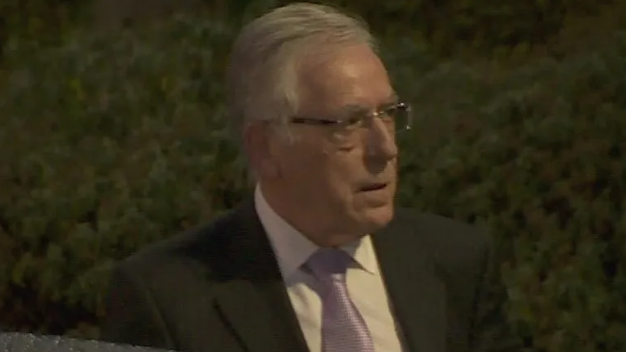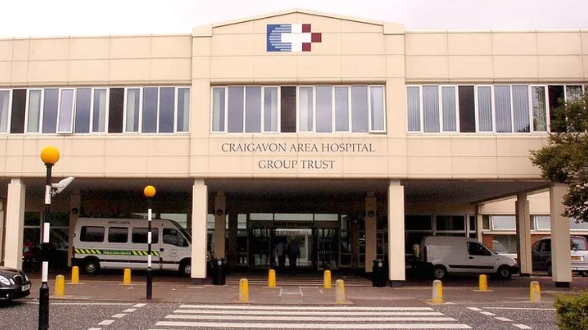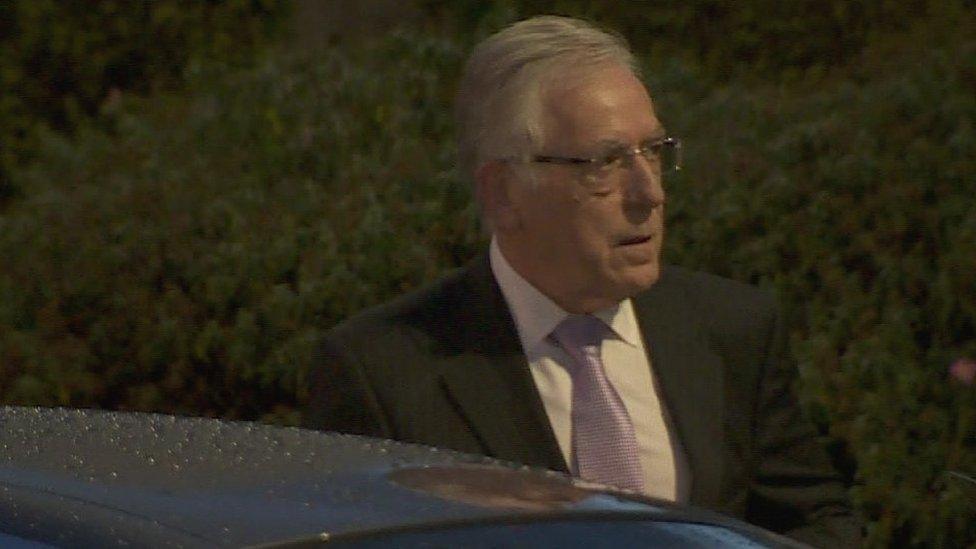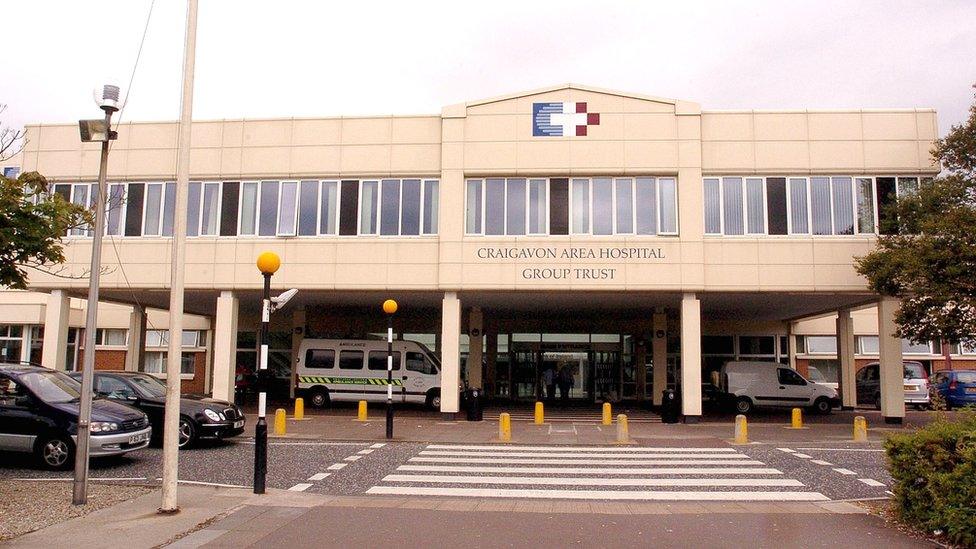Urology inquiry chair rejects 'unfairness' suggestion

Aidan O'Brien worked at the Southern Health Trust from 1992
- Published
The chair of the urology inquiry has rejected a suggestion that the inquiry has been unfair to the man at the centre of it.
The public inquiry concerns the work of Aidan O'Brien at the Southern Trust between January 2019 and June 2020.
The inquiry - which was established in 2021 - is examining the Trust's handling of urology services prior to May 2020.
Mr O'Brien became a consultant urologist in Craigavon Area Hospital in July 1992.
After hearing final oral submissions from Mr O'Brien's counsel on Thursday, chair to the inquiry Christine Smith KC said the panel was interested in what Mr O'Brien was saying in parts of his written submissions.
She asked if they were correct in the interpretation that he was "in some way saying that this inquiry has been unfair to Mr O'Brien”.
Gerry Boyle KC, counsel for Mr O'Brien, told the inquiry that there were three core participants to the inquiry.
"So far, only one of them, I can't speak for the Department, but only one of them has had access to full sets of records - all of the scans, all of the correspondence, all of the reports on all of the patients,” he told the inquiry.
He said that Mr O'Brien has not.
He added: "If there are going to be findings of fact made which are going to be critical of a medical practitioner, about his treatment of a patient, in a public report where he has not even had the opportunity to read a single page of some of the records of some of them, that is unfair."
Responding , the inquiry chair rejected the suggestion that the inquiry had been in any way unfair to Mr O'Brien.
'Repeatedly made clear'
Ms Smith KC said she had "repeatedly made clear" and referenced Mr O'Brien, who was at the inquiry, in saying she hopes "he gets this message loud and clear" that this inquiry will not make any judgment regarding the clinical care provided in individual cases.
She said that was a matter for the Trust, for the GMC [General Medical Council] and for the courts.
- Published24 November 2020
- Published19 April 2023
She added that Mr O'Brien had the opportunity to comment on certain issues, both in written evidence and orally - and said that "any suggestion that he has been hampered in doing so by not having access to medical notes and records from this inquiry is entirely refuted”.
"He has been afforded every opportunity to explain how he practised in general terms and to deal with specific allegations regarding his practice," she said.
The inquiry’s chair asked Mr O'Boyle to "accept, on behalf of Mr O'Brien, that there has been no unfairness in the inquiry's treatment of him".
Mr O'Boyle said he was an advocate and not a witness and couldn't give evidence on behalf of Mr O'Brien.

Mr O'Brien worked at Craigavon Area Hospital before his retirement in July 2020
The exchange continued, with the chair repeating that the inquiry is "not making judgments about care in individual cases" and that "there is no need to share any medical notes and records with anyone, Mr O'Brien or any other core participant”.
"The fact that one core participant has access to those medical notes and records is simply because they hold them, rather than for any other reason,” she told the inquiry.
"Anything that was shared with the core participants that is relevant is in the evidence bundles," she said.
Ms Smith said the inquiry is "primarily looking at governance, and as Mr Lunny [counsel for the Southern Health and Social Care Trust] quite aptly put it in his written submissions, Mr O'Brien's practice is the gateway through which we are looking at those governance issues".
The inquiry also heard closing submissions on behalf of the Southern Health Trust and the Department of Health.
Thursday’s session was the last planned hearing of the urology inquiry until the report into it is completed.
The inquiry’s chair could not say when the final report would be delivered.
But she said she would "work as expeditiously as possible to complete it".
Related topics
- Published8 April 2024

- Published8 November 2022
